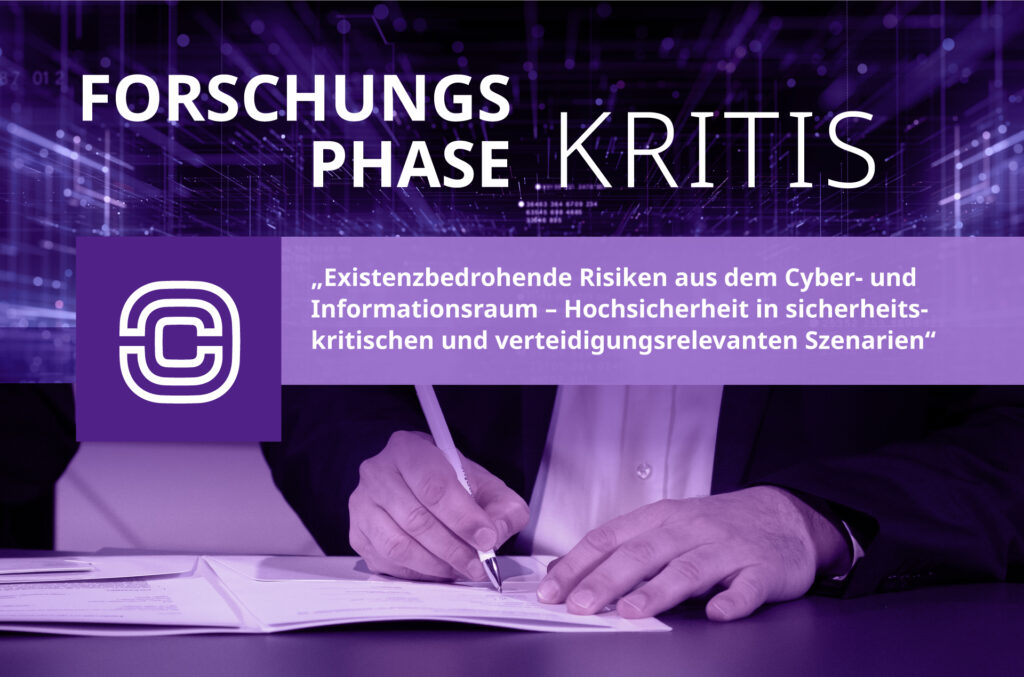Decision made on the Cyberagentur’s first major project

The ATTRIBUT and SOVEREIGN projects have come out on top in the research competition on “Existential risks from cyber and information space” organized by the Agentur für Innovation in der Cybersicherheit GmbH (Cyberagentur). At the final-stage symposium, the three finalists presented their innovative concepts, which have now been evaluated by a jury of experts.
The Cyberagentur has selected two outstanding projects that will continue their research into the next phase of the competition “Existential risks from cyber and information space – high security in security-critical and defense-relevant scenarios” (HSK). The ATTRIBUT and SOVEREIGN projects impressed the expert jury with their innovative approaches and scientific excellence.
On August 20, 2024, the three projects – ATTRIBUT, SOVEREIGN and MANTRA – presented their concepts from the second phase of the research competition to a broad audience of experts and stakeholders in internal and external security. The final evaluation by the jury was in favor of ATTRIBUT and SOVEREIGN.
Dr. Gerald Walther, Head of Critical Infrastructure Protection at the Cyberagentur, explained the decision-making process: “Both projects convinced the jury both in terms of their scientific claim and their potential future application and usability for internal and external security stakeholders. Both research topics of the projects – protection of IT systems via secure hardware and improved detection of steganographic procedures – will contribute to increasing digital sovereignty in Germany and show that the Cyberagentur can fund world-class research in Germany.”
The ATTRIBUT project at the University of Magdeburg focuses on the detection of malicious code attacks carried out through covert communication and steganographic channels. SOVEREIGN, developed by the University of Hamburg, aims to create an AI- and zero-trust-based cyber defense platform that contributes to the security of critical infrastructures.
“Both address fundamental problems in the field of operational security and the research will pave the way for future solutions and products. In the next phase, there will be a greater focus on possible synergies between the two projects. This is where the results of the research can support each other,” Dr. Walther continues.
Asvin GmbH’s MANTRA project was not successful in this round. Nevertheless, Dr. Walther sees a lot of potential in the results obtained so far: “Asvin GmbH and its subcontractors can use the results to position themselves excellently in future research tenders – possibly again with the Cyberagentur. In addition, the research has raised interesting new topics in the field of cyber security research, which are also being actively considered by the Cyberagentur.”
With the conclusion of the research phase, the next stage of the competition now begins for the two successful projects. In this longest phase of HSK, the concepts will continue to be implemented and intensive research will be carried out on the topics. The aim is to develop innovative solutions that make a significant contribution to security in cyber and information space. This research phase is funded with up to 10 million euros each.
Further information: https://www.cyberagentur.de/hsk/
